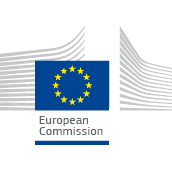
Developing a strategic research, innovation and implementation agenda and a roadmap for achieving full digital language equality in Europe by 2030
Deadline: Jul 29, 2020
CALL EXPIRED
CALL EXPIRED
Innovation
Technology Transfer
Disadvantaged People
Gender Equality
Digital Economy
Education and Training
Culture and Development
Digital Culture
Digital Society
BACKGROUND
On 20 April 2020, the European Commission adopted the work programme for 2020 on the financing of pilot projects and preparatory actions in the field of "Communications Networks, Content and Technology".
Twenty-four official languages, some 60 regional and minority languages, as well as the languages of immigrants and important international trade partners determine the fabric of the EU’s linguistic landscape. Several studies and resolutions, as noted in the European Parliament resolution P8_TA-PROV(2018)0332 “Language equality in the digital age”, have found a striking imbalance in terms of digital language technologies. Only a few languages, such as English, French and Spanish, are well supported in the digital domain, while more than 20 official languages as well as many more regional and minority languages are considered to be in danger of digital extinction.
European human language technologies have the potential to overcome this linguistic divide in the digital sphere. To unleash their full potential, this pilot project will develop a strategic research, innovation and implementation agenda with a roadmap for achieving full digital language equality in Europe by 2030.
OBJECTIVES
The objective of this pilot project is to draw up a sustainable evidence-based strategic research agenda and roadmap setting out actions, processes, tools and actors to achieve full digital language equality of all languages (official or otherwise) used within the Union through the effective use of language technologies . The research agenda should lay out the current state of language technologies and language equality within the Union and give a detailed picture of the desired situation that is needed to achieve digital language equality. The roadmap will then provide the path and the means needed to implement the agenda and ensure that digital language equality becomes a reality by 2030.
Research agenda
The selected project will create a research agenda, which will:
- Map relevant stakeholders and initiatives and liaise with them through public consultations and on-going dialogues;
- Map relevant technologies, in particular based on artificial intelligence, assess their impact on the linguistic landscape and then analyse the conditions required to maintain and improve the required knowledge within Europe;
- Identify key research areas and gaps in research that need to be addressed to ensure language technologies can overcome the linguistic divide;
- Define the varying needs for language technologies (not only machine translation) across all the sectors that make up the European Digital Single Market and across languages used within the EU and its partner countries, but especially the lesser-used or under-resourced languages.
Roadmap for achieving digital language equality
In addition to the research agenda, the project will create a roadmap whose implementation will achieve digital language equality by 2030. This roadmap will define:
- Tools, processes, actions and actors required to achieve full language equality for all sectors and stakeholders in the EU by 2030;
- A reasoned prioritisation of actions to be taken, with clear milestones and accountabilities , to ensure the roadmap can be followed successfully and completed on time;
- Key performance indicators for measuring progress/success in the implementation of the roadmap produced by the project;
- How to ensure the knowledge and skills for implementing the roadmap remain within the Union to foster the EU’s technological sovereignty in this critical area;
- A cost analysis of the funding requirements needed to ensure the roadmap can be successfully followed;
- The necessary stakeholders and actors that need to be involved to ensure that by 2030 no European languages remain at risk of digital extinction.
Dissemination and awareness raising
An important aspect to successful implementation of the roadmap will be dissemination and awareness raising activities (including events, consultations, social media and dialogues). These will need to engage with all relevant stakeholders to ensure broad buy-in by the European language technology industry and research sectors, as well as with digital information providers and the citizen in general.
The aim of this project is to establish a practical, implementable and achievable agenda and roadmap, demonstrating the vast potential of digital language technologies for the broadest possible range of sectors and stakeholders. The engagement and dissemination activities therefore need to reach beyond long-standing actors in the language technology industry and draw in views and use cases from new stakeholders and sectors.
Public link: Only for registered users
 Pilot Projects & Preparatory Actions
Pilot Projects & Preparatory Actions
Please Log In to See This Section